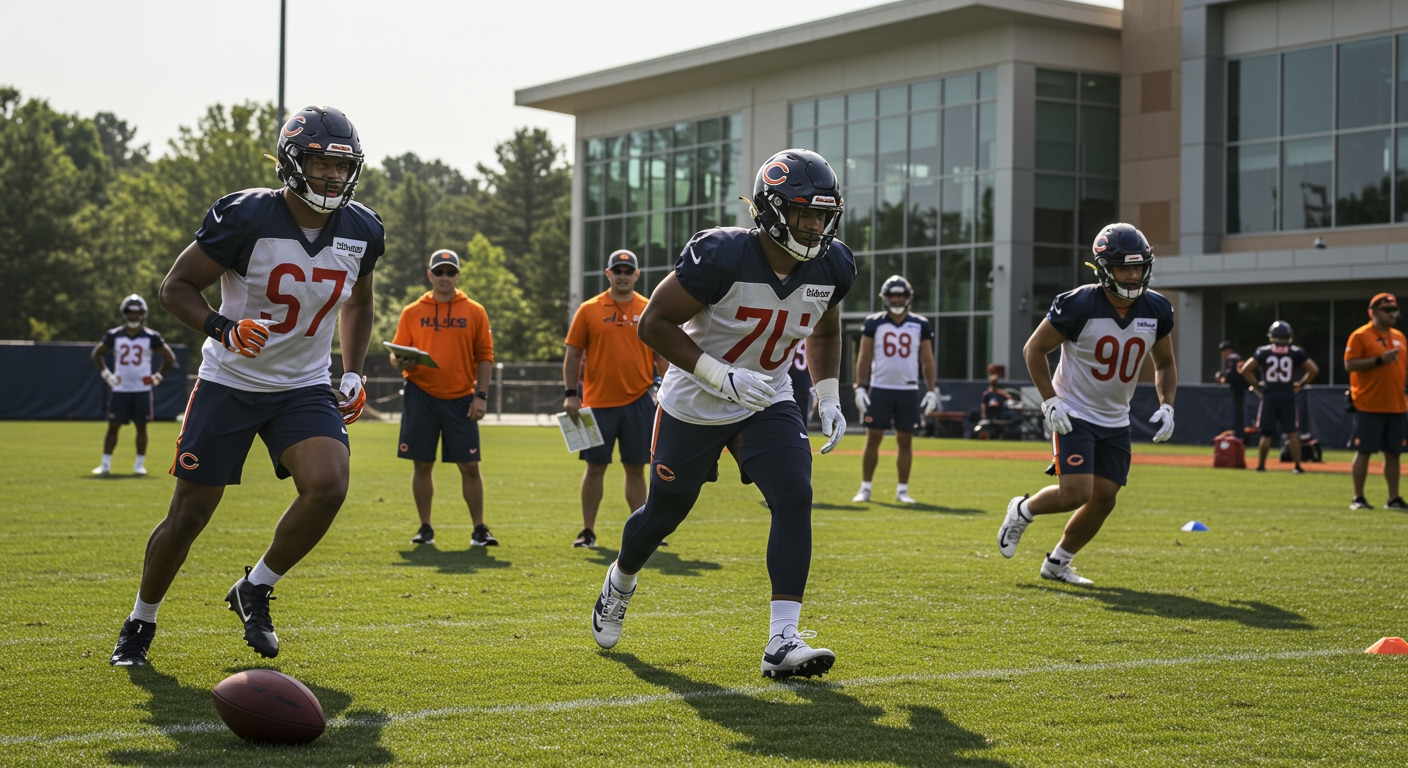The NFL has seen countless coaches come and go, but few have left a legacy as profound as Dick Jauron. As the head coach of the Chicago Bears from 1999 to 2003, Jauron faced the odds stacked against him, yet he led the team to one of its most memorable seasons in 2001. Recently, the football community mourned the loss of Jauron, who passed away at the age of 74 in Massachusetts after battling cancer. This article will explore his remarkable journey, his coaching philosophy, and the impact he had on players and the NFL community.
Early Life and Career
Dick Jauron was born in Peoria, Illinois, but made a name for himself as a standout athlete in Swampscott, Massachusetts. His football journey began at Yale, where he was a three-time Ivy League selection. After being drafted by the Detroit Lions in 1973, Jauron quickly established himself as a force on the field. Playing as a free safety, he made the Pro Bowl in 1975 and recorded 25 interceptions over his nine-year playing career, which included stints with the Cincinnati Bengals.
Jauron’s transition from player to coach began after his retirement. Under the tutelage of coaching legend Dick LeBeau, he honed his skills and joined the NFL coaching ranks in 1985, starting with the Buffalo Bills. His coaching career spanned nearly three decades, with notable positions that included coaching defensive backs for the Green Bay Packers and serving as defensive coordinator for the Jacksonville Jaguars under Tom Coughlin.
The Chicago Bears Era
In 1999, Jauron took the helm as the head coach of the Chicago Bears. However, his early years were rocky, as the team struggled to find its footing. By 2001, entering his third season, expectations were low. The Bears were predicted to finish last in the NFC Central, and many viewed Jauron’s partnership with newly hired general manager Jerry Angelo as a fragile one. Angelo himself acknowledged the uncertainty, stating, “This whole organization is contingent on how the marriage works. If it does not work out, like any marriage, it’s going to be real messy.”
Against all odds, 2001 became a groundbreaking year for Jauron and the Bears. The team finished the regular season with a stunning 13-3 record, clinching the NFC Central title. Jauron’s leadership and ability to inspire players turned what was expected to be a lost season into a remarkable success. His coaching prowess was recognized when he was named AP Coach of the Year, receiving more votes than legendary coach Bill Belichick of the New England Patriots.
Defining Moments of the 2001 Season
The 2001 season was marked by a series of thrilling victories, including two consecutive overtime wins that were sealed by safety Mike Brown’s interception returns. Reflecting on the team’s resilience, Jauron stated, “Those guys took the field and really they never doubted themselves.” The Bears demonstrated an uncanny ability to win close games, finishing 8-0 in contests decided by seven points or fewer. Despite the team’s incredible performance, Jauron remained humble, recognizing the thin line between winning and losing: “Maybe we should have had three more wins.”
Challenges and Changes
Despite the triumph of 2001, the following season presented significant challenges. Soldier Field was undergoing renovations, forcing the Bears to play their home games at Memorial Stadium in Illinois. The impact of this displacement, combined with a slew of injuries, caused the team to slump to a disappointing 4-12 record in 2002. The Bears found themselves in search of a franchise quarterback, ultimately selecting Rex Grossman in the first round of the 2003 NFL Draft. Unfortunately, inconsistent play led to another lackluster season, and Jauron was let go after a 7-9 finish.
Legacy Beyond the Bears
After departing from the Bears, Jauron continued his coaching career as a defensive coordinator for the Detroit Lions and later as the head coach of the Buffalo Bills. However, his commitment to family took precedence in the later years of his life. After his wife, Gail, was diagnosed with dementia, Jauron dedicated himself to her care, earning respect from former players and colleagues alike for his devotion.
Reflections from Players and Colleagues
Jauron’s impact on players extended far beyond the field. Hall of Fame linebacker Brian Urlacher remembered him as a stabilizing presence, saying, “He was amazing and a lot like Lovie Smith in the aspect of he was kind of like your dad and you didn’t want to let him down.” His ability to connect with players on a personal level made him a beloved figure in the locker room.
Former Bears center Olin Kreutz echoed these sentiments, recalling how Jauron had a unique way of motivating his players: “He had a way of walking down the hallway and he’d just look at you and say, ‘We need a little more from you.’” Jauron’s approach was characterized by honesty and accountability, traits that earned him the respect of his players.
Remembering a Great Coach
Jauron’s passing is a significant loss for the football community. He was not only a respected coach but also a devoted family man and a person of integrity. Former Bears long snapper Pat Mannelly shared a heartwarming anecdote about Jauron’s parenting style. When Mannelly and fellow player Chris Chandler visited Jauron at home, they found his daughters preparing for prom. Instead of asking them to leave, Jauron insisted they stay, creating a memorable moment that showcased his caring nature.
Conclusion
Dick Jauron’s legacy is etched in the history of the Chicago Bears and the NFL. His journey from player to coach, his remarkable 2001 season, and the profound impact he had on his players all contribute to a life well-lived in football. As the NFL community remembers Jauron, they celebrate not just a talented coach but a compassionate man who understood the importance of relationships both on and off the field. The lessons he imparted and the memories he created will continue to inspire future generations of players and coaches.














